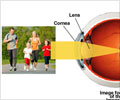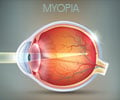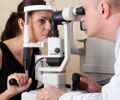More than half of the world’s population is projected to be myopic by 2050, significantly raising the risk of associated vision-threatening conditions.

‘Myopia is a leading cause of vision impairment worldwide and is growing in prevalence, this study aims to provide a deeper understanding of the biology of myopia that will lead to new and more effective treatments.’





The research is being conducted as a collaboration between two experienced researchers and their teams. Dr. Troilo is one of the original developers of the experimental paradigms being used to develop myopic and hyperopic eyes with over 30 years of experience. Dr. Botond Roska is the co-director at the Institute of Molecular and Clinical Ophthalmology Basel (IOB) in Switzerland and an internationally recognized leader in vision and vision restoration research using genetic and molecular techniques to study cell specific function in inherited retinal disease. Despite the development of several evidence-based treatments to manage myopia progression, the prevalence and complication rates continue to rise, and treatment has not yet proven to be fully effective. Very little is known about the underlying cellular and molecular mechanisms that surround myopia development and Dr. Troilo’s and Dr. Roska’s research is an effort to change that.
“We are all very excited about this research project and securing the funding from NEI to make it happen. It will help better understand the mechanisms of visually-regulated eye growth and specifically what happens in the eye that makes them elongate and develop myopia. This is a large and highly collaborative project that involves talented teams of researchers led by Alexandra Benavente and Stefanie Wohl in New York and Tiago Rodrigues and Cameron Cowan in Switzerland. Their experience and expertise, and the great resources at IOB are the keys to the success of this project.”
This investigation meets three of the NEI objectives under myopia research including investigating the biochemical pathways that regulate eye growth; identifying genes that contribute to the development of refractive errors and developing new technologies for assessing or treating refractive errors.
Source-Eurekalert












